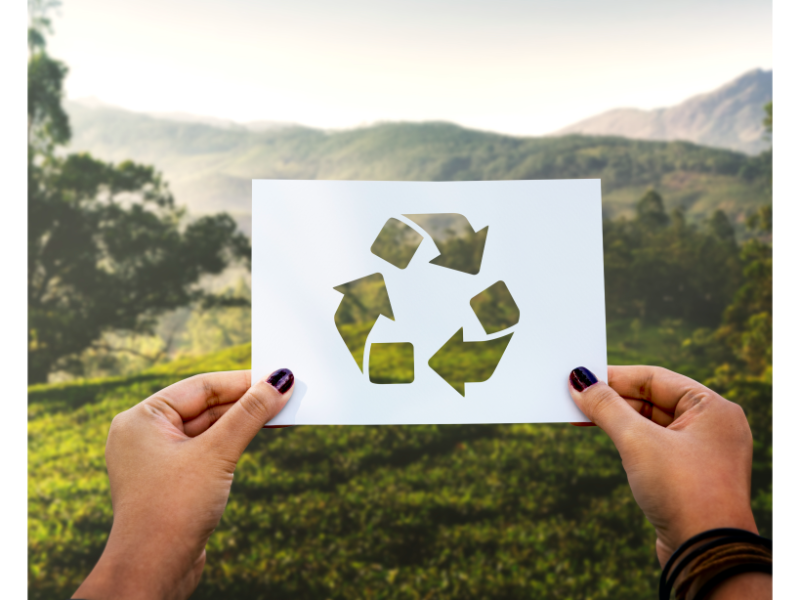Recovery is one of the most effective solutions for waste management, environmental protection, and sustainable living. Today, increasing industrialization, urbanization, and consumption habits are causing waste volumes to rise rapidly. This growth raises the risk of depleting natural resources and leads to severe environmental pollution. Through recovery, paper, plastic, glass, metal, and organic waste are reprocessed and reintegrated into the economy. This reduces the demand for raw materials. It also leads to significant energy savings. At the same time, carbon emissions decrease, and environmental impacts are minimized. Recovery is an essential waste management solution for businesses aiming for sustainable development goals. It helps protect natural resources and ensures the efficient use of economic resources.
Table of Contents
- What is Recovery?
- How Do Recovery Processes Work?
- Benefits of Recovery for Businesses and the Environment
- Burkasan’s Expertise in Recovery
- Frequently Asked Questions
- Conclusion
What is Recovery?
Recovery is a process that allows waste to be re-evaluated through physical, chemical, or biological treatments. Through this method, waste is converted into reusable materials before being directly disposed of. Because when properly processed, every waste carries the potential to become a resource. This approach creates significant opportunities for both the environment and the economy.
In the recovery process, plastic, glass, metal, paper, and organic waste are collected separately. They are then processed with appropriate technologies to be used in the production of new products. This reduces dependence on natural resources. It also provides energy savings and lowers greenhouse gas emissions.
In today’s world, where resources are limited, recovery is at the core of environmental protection strategies. This process contributes to preserving natural ecosystems. It plays an effective role in preventing soil, water, and air pollution. Additionally, it reduces the burden on waste storage sites and minimizes environmental risks.
Economically, recovery offers significant benefits as well. Businesses can reduce raw material costs by recovering waste. At the same time, they comply with legal regulations and strengthen their eco-friendly image. Many industries prioritize practices in line with growing environmental awareness and sustainability goals.
Recovery practices are not only about today but also about future generations. Preventing the depletion of natural resources, combating climate change, and protecting the environment make recovery a critical tool. Therefore, it is essential for everyone, from individuals to businesses, to contribute to this process.
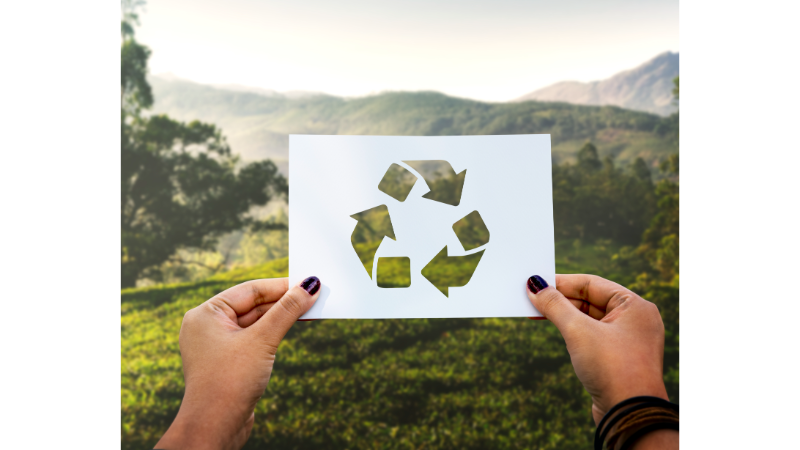
How Do Recovery Processes Work?
It operates based on a planned and systematic process consisting of specific stages. This process ensures that waste is reintegrated into the economy before being directly disposed of. Each step directly affects the system’s overall efficiency and environmental impact.
- 1. Source Separation of Waste
The first and most critical step of recovery is proper separation of waste at its source. At this stage, waste is collected in separate containers according to its type. Plastic, metal, glass, paper, and organic waste are separated from each other. Processing mixed waste in facilities is more difficult. It also increases processing costs and may reduce the quality of the output material. - 2. Collection and Transportation
Separated waste is collected by municipalities or private companies. It is safely transported to recovery facilities using special collection vehicles. A careful system is applied during transportation to prevent contamination and mixing of waste. - 3. Pre-Processing and Cleaning
After collection, waste goes through detailed pre-processing at recovery facilities. First, waste is cleaned of dirt, foreign materials, and contamination. Then, it is shredded and pressed according to its size. These processes improve the material’s quality and make the following processing steps easier. - 4. Processing and Conversion
Cleaned and properly sized waste is processed according to its type. Plastic waste is melted and turned into granules. Metals are melted and reshaped. Paper waste is pulped and used in new paper production. Organic waste is processed through composting or biological conversion methods. - 5. Reuse or Sale
Processed materials can be reused as raw materials in various sectors. Plastic granules are used in the packaging and textile industries. Recycled metals are used in the automotive and construction industries. Paper recycling produces new paper and cardboard products.
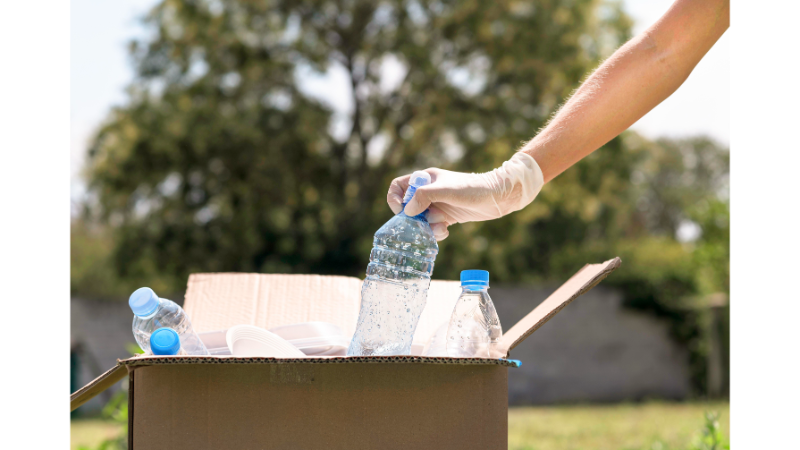
Benefits of Recovery for Businesses and the Environment
It offers versatile benefits for both the environment and businesses. These benefits contribute to sustainable development not only in the short term but also in the long run.
Protects Natural Resources
Recovery significantly reduces the need for new raw materials by utilizing existing waste. As a result, forests, mines, water resources, and other natural assets are consumed less. The preservation of natural resources is critical for maintaining ecosystem balance. At the same time, the resource needs of future generations are secured.
Reduces Energy Consumption
Processes require much less energy compared to the initial production of many raw materials. For example, recycled aluminum production saves up to 95% of energy compared to new aluminum production. Lower energy consumption also reduces greenhouse gas emissions, effectively contributing to the fight against climate change. This minimizes the carbon footprint on the environment.
Optimizes Waste Management Costs
Waste disposal and storage costs represent a significant expense for businesses. Recovery allows most waste to be utilized, reducing the amount of waste requiring disposal. This significantly lowers storage, transportation, and disposal expenses. Additionally, revenue generated from recovered waste positively contributes to the company’s financial balance.
Supports Legal Compliance
Environmental regulations in Turkey and around the world are becoming increasingly strict. Practices help businesses comply with legal requirements. This protects them from fines, administrative sanctions, and potential damage to brand reputation. Legal compliance also strengthens a company’s competitiveness within its sector.
Strengthens Brand Reputation
Environmental responsibility creates a positive perception among consumers and business partners. Recovery practices allow brands to demonstrate their sustainability vision through concrete actions. This increases customer loyalty and creates new business opportunities. Recovery efforts integrated with corporate social responsibility projects contribute to long-term brand value.
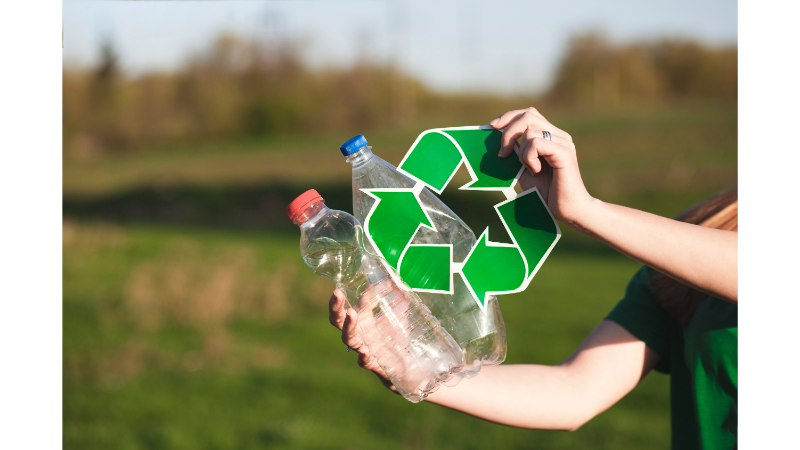
Burkasan’s Expertise in Recovery
With 25 years of deep industry experience, Burkasan operates a wide service network across Turkey. The company provides efficient and professional services in every sector where waste is generated. It develops solutions for various scales, from industrial facilities and service sectors to retail and manufacturing fields.
Each customer has different needs. Burkasan designs customized recovery systems by considering these differences. It creates specific plans based on the business field, waste type, and operational requirements of each company. Thus, waste management processes are carried out with minimal workload and maximum efficiency.
Thanks to its integrated and sustainable systems, Burkasan conducts environmentally friendly and fully compliant operations. It acts meticulously at every stage according to Turkish environmental regulations and international standards. Businesses can entrust their recovery processes to Burkasan’s experts and avoid complex legal procedures.
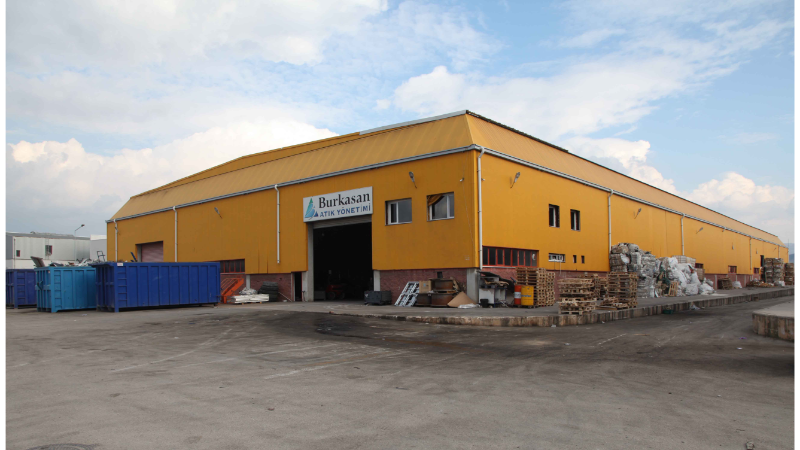
Frequently Asked Questions
What is recovery?
It transforms waste into reusable raw materials through physical, chemical, or biological processes. This allows waste to be reintegrated into the economy while reducing natural resource consumption.
Which types of waste can I recover?
You can recover paper, plastic, glass, metal, electronic waste, and organic waste. A large portion of industrial waste can also be processed using appropriate methods.
Why is recovery important?
It protects natural resources, reduces energy consumption, and decreases environmental pollution. At the same time, it helps businesses optimize costs and ensures legal compliance.
What happens if my business doesn’t practice recovery?
Businesses that do not engage in recovery may face legal sanctions and fines. Negative environmental impacts can also damage brand reputation.
How can I start the recovery process?
You can begin by separating waste at its source and working with a specialized company. With proper planning, you can achieve effective results.
Which industries does Burkasan serve?
Burkasan offers tailored solutions for businesses in industrial, service, manufacturing, and many other sectors. It develops systems customized to each company’s needs.
What services does Burkasan provide?
Burkasan offers waste analysis, source separation planning, collection, transportation, and processing services. It also provides consulting and regulatory compliance support.
How does recovery affect my business costs?
It reduces disposal and storage costs. Additionally, revenue from recovered waste provides extra financial gains.
Conclusion
In conclusion, recovery is an essential strategy for all businesses aiming to build a sustainable future. Facing the rapid depletion of natural resources, the re-evaluation of waste becomes critically important. Through recovery, businesses contribute to the environment while also gaining significant economic advantages. Properly implemented recovery systems reduce raw material needs. They save energy and help prevent environmental pollution. At the same time, they facilitate businesses’ compliance with legal responsibilities.
Recovery enhances brand value and creates competitive advantages. With 25 years of experience, Burkasan provides professional waste management and recovery solutions. It designs customized systems tailored to each business’s specific needs, ensuring smooth recovery processes. From source separation to collection, transportation, processing, and reuse, Burkasan meticulously manages every stage. Properly managed waste secures not only the environment but also the future of businesses. For all companies aiming to achieve sustainability goals, recovery is no longer an option but a necessity.
Visit our blog page to read more articles and get further information on the topic.

